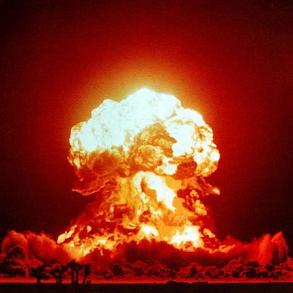Fearing the Nuke: The Nuclear Security Summit

Bernard Baruch’s words come to mind when looking at the latest nuclear summit in Washington, hosted by President Barack Obama. Speaking as US representative to the UN Atomic Energy Commission in June 1946, Baruch reminded those who cared to listen to him that the world faced a choice between the quick and the dead on the subject of regulating the atom. The world has proven to be rather quick on the matter of acquiring weapons and far from dead. Nuclear weapons remain very much part of the military doctrines of the major military powers. Despite these teething contradictions, 47 countries stood up to the challenge and accepted the American president’s invitation to attend a nuclear summit as a preliminary to the 2010 Review Conference of the Parties to the Treaty of the Non-Proliferation of Nuclear Weapons (NPT).
Gradually, the nuclear weapon has become the signature of sovereignty: those who have it must be taken seriously, whatever their drawbacks. Nuclear arsenals can make the most weak and fragile look dangerous. Those who do not must rely on boosting their aid and cultural credentials, forging their way in the world as ‘responsible’ powers dedicated to ‘peacekeeping’. What we have is a recurring formula of international relations at play. The haves are noisily threatening the have-nots. Those in possession of the dreaded nukes are getting tetchy about those who might acquire them. A frustrated column in The Jakarta Post summed it up rather well. ‘Rather than using the “carrot”, the US has opted to apply the “stick”: in dealing with nuclear weapon states’ (Apr 15). Issues such as the peaceful development of nuclear power, the issue of disarmament, and the issue of non-proliferation, received scanty treatment.
Instead, leaders were preoccupied with ‘rogue’ elements of the world, whether they be terror franchises or countries scouring the globe for errantly disposed of nuclear materials which might prove handy in a scheme of mass murder. Obama has called for the securing of all nuclear materials within four years before such groups get them. Non-nuclear portions of the world are to be stripped of every gram of highly enriched uranium. This exclusive emphasis was demonstrated by the fact that ‘undesirable’ states either already in possession of a nuclear option or those seeking to develop stockpiles – North Korea and Iran, were snubbed.
The fear of nuclear terrorism came very much to the fore, though it is a concept that is highly fanciful. Terrorists are made to sound like experimental chefs cooking up a potpourri so lethal it would empty most of Manhattan. In truth, the means to manufacture a weapon, even if one had weapons-grade fissile material, would be problematic. That has not deterred the political establishment from thinking otherwise. In Obama’s words, ‘Terrorist networks such as al-Qaida have tried to acquire materials for a nuclear weapon, and if they ever succeed, they would surely use it.’
Countries are currently busy parading their nuclear (or non-nuclear) credentials. As a gesture to show how enthusiastic it is on the subject, Iran has also announced its own two-day bonanza under the title ‘nuclear energy for everyone, nuclear arms for no one.’ 60 countries have been invited, and political theatre on the subject of the nuke has never been so rich. And countries such as Iran have little reason to have faith in US promises to reduce their lethal arsenal. Even amidst the enthusiastic chatter of arms reduction and non-proliferation, Obama could still announce an increase in budget allocations for nuclear production facilities. And so the nuclear dance continues.
Binoy Kampmark was a Commonwealth Scholar at Selwyn College. He lectures at RMIT University, Melbourne. Email: [email protected]

